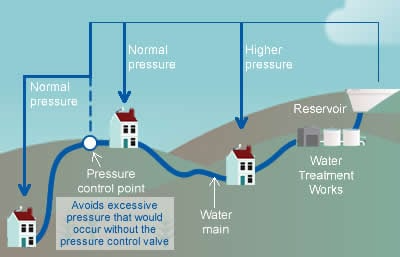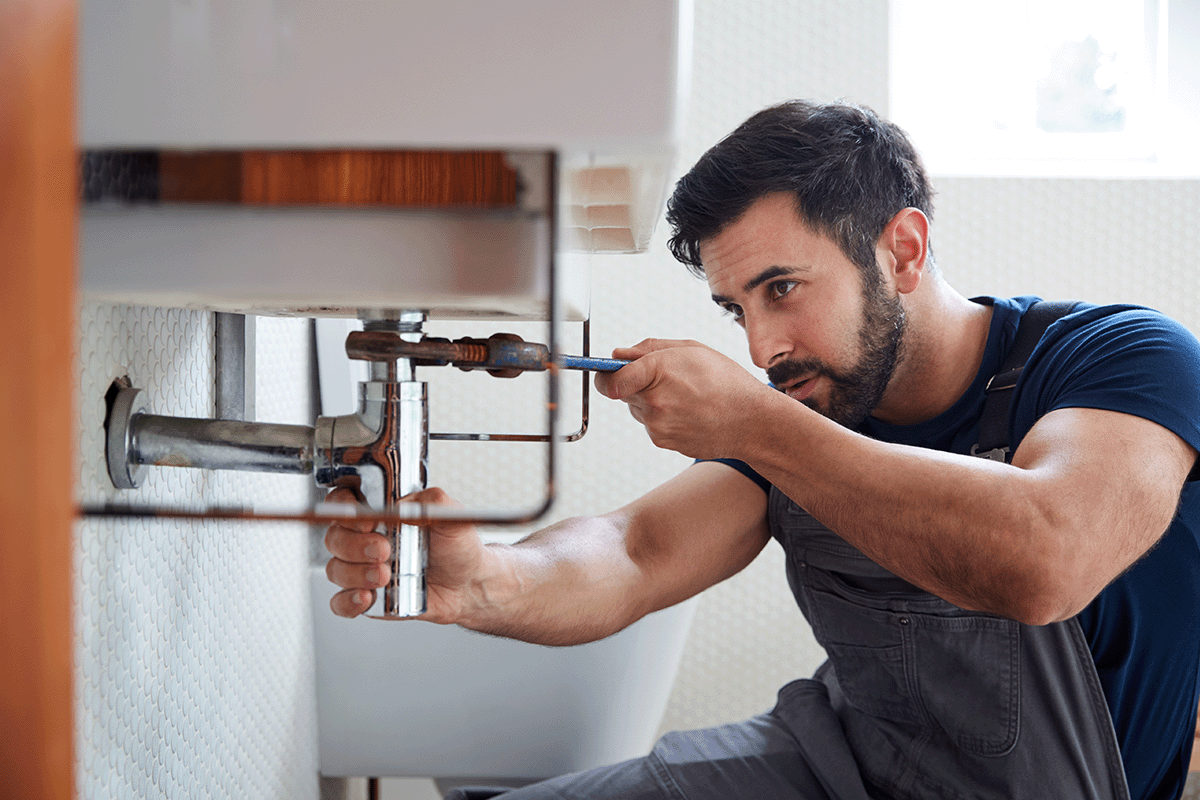In your area
Enter your address, postcode or area below to find the work we're doing
What is water pressure?
Water pressure is the power that moves water from our service reservoirs (stores of treated water) to your home. It’s created by gravity when the water moves downhill from the reservoir, e.g. a water tower. In some cases, the water is pumped to maintain the correct pressure.
We make sure to supply water at a minimal pressure of 7 metres head (approximately 10 psi or 0.7 bar). Pressure is measured at the point where our communication pipe joins your supply pipe. It means you should be able to fill a 2-litre bottle in no more than 13 seconds.
In most cases, we try to provide at least 10 metres head (approximately 14 psi or 1.0 bar) at the end of our communication pipes.
Why does water pressure change?
Pressure can be affected for a lot of different reasons, but in most cases the effects will be short-lived.

Low pressure
Low pressure can be caused by any of the following:
- Work being carried out by us, or an unexpected event like a burst – for health and safety reasons, before we carry out certain types of work on our pipes, we must first reduce the pressure to keep everyone safe. It will be returned to normal before we leave, but it might take a few minutes to start running consistently again.
- The time of day – peak demand times are when lots of people are using the water network at the same time (like in the morning and in the evening). Pressure can reduce as a result.
- A shared supply pipe – as above, if there’s lots of water being used at the same time by you and those you share your supply pipe with, the pressure will be shared between you and will be reduced as a result.
- A smaller or older supply pipe – smaller pipes reduce the pressure because not as much water can get down them at once.
- Longer pipework – pressure is measured at the point where water enters your supply pipe. If your supply pipe or internal plumbing is long, the pressure will be lower by the time it reaches your taps.
- The height and distance of your house in relation to the reservoir – the nearer you are to the reservoir, the higher the pressure will be. We have valves throughout our network that help regulate the pressure and keep it relatively consistent across the region, and always at least 0.7 bar.
High pressure
High pressure is much rarer than low pressure. It’s usually caused when we’ve carried out work in your area and air has got trapped in the pipes as a result. After the work has been completed, if you run the tap for a few minutes, the pressure should sort itself out again.
What should I do if the pressure of my water changes?
If you experience low or high pressure for extended periods of time, please contact us on 0344 346 2020 and we’ll look into it for you.
Low pressure
There are a series of checks you can do to find out what’s causing low pressure:
- Have a look at our In Your Area map to find out if there’s any work causing this.
- Check if your neighbours have the same problem. If not they don’t, the problem may be in your internal plumbing.
- Check if the low pressure is only affecting your hot water. If it is, this would indicate an internal plumbing problem and you’ll need to contact a plumber.
- Turn your internal stop tap on and off 3 times while the cold kitchen tap is open. This helps release any air in the pipework without causing water hammer.
- You should also double check that your external stop tap is open.
High pressure
If you’re experiencing pressure that is too high there’s two things you can do:
- You can turn your internal stop tap (usually under your kitchen sink) down slightly to reduce the flow.
- You can also install a pressure reducing valve on your private pipework, which allows water to flow into it and reduces the pressure to a required setting. We’d suggest setting it at 3 bar and increasing if necessary.
If high or low pressure has caused damage to any of your appliances, please call us on 0344 346 2020.
